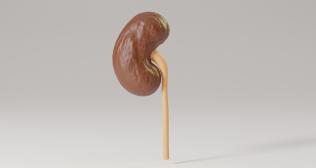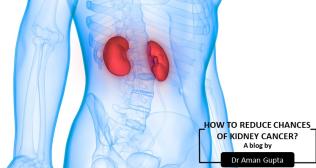
Managing Diarrhea Post-Kidney Transplant: Effective Treatment
Introduction
Receiving a kidney transplant marks a significant milestone in the lives of individuals with kidney failure. While the transplant brings hope for improved health and quality of life, it also introduces new challenges, one of which is managing diarrhea. Diarrhea post-transplant can be concerning, but with proper understanding, evaluation, and management, it can be effectively addressed.
Causes of Diarrhea After Kidney Transplant
Several factors can contribute to diarrhea after a kidney transplant, including:
- Medications: Immunosuppressant drugs, such as tacrolimus and mycophenolate mofetil, commonly prescribed for recovery post-kidney transplant, can cause gastrointestinal disturbances leading to diarrhea.
- Infections: Patients on immunosuppressive medications are at an increased risk of diseases, including gastrointestinal infections, such as Clostridium difficile (C. difficile) infection and viral gastroenteritis, which can cause diarrhea.
- Dietary Changes: Post-kidney transplant diet modifications, such as increased intake of fruits and vegetables, may lead to dietary intolerance and diarrhea.
- Other Factors: Psychological stress, changes in gut microbiota, and pre-existing conditions like inflammatory bowel disease can also contribute to diarrhea post-transplant.
Evaluation
Proper evaluation is essential to post-kidney transplant care and is crucial to determining the underlying cause of diarrhea. It involves:
- Medical History Assessment: A thorough medical history review, including details of medications, recent infections, dietary changes, and pre-existing gastrointestinal conditions
- Physical Examination: Examination for signs of dehydration, abdominal tenderness, and other relevant symptoms
- Laboratory Tests: Stool analysis for infectious pathogens like C. difficile toxin, stool cultures, and blood tests to assess electrolyte imbalances and renal function
- Imaging Studies: In some cases, imaging studies such as abdominal ultrasound or CT scan may be required to evaluate for structural abnormalities or complications.
Post-Kidney Transplant Care For Diarrhea
The management of diarrhea post-transplant depends on the underlying cause and severity of symptoms. Here are some commonly employed strategies:
- Medication Adjustment: In cases where diarrhea is attributed to immunosuppressive medications, dosage adjustment, or switching to alternative medications may be considered for medical supervision.
- Infection Management: Treatment with appropriate antimicrobial agents for the detected infections and supportive measures such as hydration and electrolyte replacement are also effective.
- Dietary Modifications: Guidance from a registered dietitian for a post-kidney transplant diet is helpful.
- Maintaining Hydration and Electrolyte Equilibrium: Diarrhea has the potential to induce dehydration and disrupt electrolyte levels. Ensuring sufficient hydration through the intake of water, electrolyte-enriched beverages, and broths plays a vital role in reestablishing equilibrium and facilitating recovery.
- Embracing the BRAT (Bananas, Rice, Applesauce, Toast) Diet: Often recommended during diarrhea episodes, the BRAT diet features gentle, easily digestible foods that solidify stools. Nonetheless, it’s imperative to reintegrate into a varied diet once symptoms are alleviated gradually.
- Steering Clear of Diarrhea-Triggering Foods: Specific foods can exacerbate diarrhea and are best avoided, including high-fat or oily foods, spicy dishes, caffeine, and artificial sweeteners. Customizing the diet based on individual triggers is essential.
- Introducing Probiotics and Prebiotics for Gut Well-Being: Probiotics and prebiotics reinstate a harmonious gut microbiota. Incorporating fermented foods and beverages, like yogurt or kefir, and fiber-rich foods fosters a flourishing digestive system.
- Symptomatic Treatment: Over-the-counter antidiarrheal medications, such as loperamide, may provide symptomatic relief but should be used cautiously and under medical guidance, especially in cases of infectious diarrhea.
- Psychological Support: Addressing stress and anxiety through counseling or support groups may help manage diarrhea, particularly if stress exacerbates symptoms.
- Optimal Exercise Regimen: Adhering to a regular physical activity routine, as healthcare providers recommend, promotes digestive wellness by regulating bowel movements, alleviating stress, and enhancing cardiovascular and musculoskeletal fitness.
- Hygiene and Sanitization: Good hand hygiene and sanitation practices prevent infections that may provoke or exacerbate diarrhea. Consistent handwashing and proper handling of food are fundamental.
- Adequate Rest and Recuperation: While exercise is beneficial, allocating time for rest and recovery is equally essential. Striking a balance between physical exertion and rest facilitates the body’s recovery and overall health.
Prevention Tips
Preventing diarrhea post-kidney transplant involves a multidisciplinary approach, including:
- Strict adherence to medication regimen as prescribed by healthcare providers
- Being physically active
- Following dietary recommendations provided by healthcare professionals
- Regular follow-up visits with healthcare providers for monitoring and early intervention
Recovery after a kidney transplant requires a comprehensive approach involving evaluation, identification of underlying causes, and tailored management strategies. With close collaboration between transplant recipients, healthcare providers, and dietitians, diarrhea post-transplant can be effectively managed, improving transplant recipients’ overall quality of life. Early recognition of symptoms and prompt intervention are essential to prevent complications and optimize transplant outcomes.
Popular Searches :
Hospitals: Cancer Hospital in Delhi | Best Heart Hospital in Delhi | Hospital in Amritsar | Hospital in Ludhiana | Hospitals in Mohali | Hospital in Faridabad | Hospitals in Gurgaon | Best Hospital in Jaipur | Hospitals in Greater Noida | Hospitals in Noida | Best Kidney Hospital in Kolkata | Best Hospital in Kolkata | Hospitals in Rajajinagar Bangalore | Hospitals in Richmond Road Bangalore | Hospitals in Nagarbhavi Bangalore | Hospital in Kalyan West | Hospitals in Mulund | Best Hospital in India | | Cardiology Hospital in India | Best Cancer Hospital in India | Best Cardiology Hospital in India | Best Oncology Hospital In India | Best Cancer Hospital in Delhi | Best Liver Transplant Hospital in India
Doctors: Dr. Rana Patir | Dr. Rajesh Benny | Dr. Rahul Bhargava | Dr. Jayant Arora | Dr. Anoop Misra | Dr. Manu Tiwari | Dr. Praveer Agarwal | Dr. Arup Ratan Dutta | Dr. Meenakshi Ahuja | Dr. Anoop Jhurani | Dr. Shivaji Basu | Dr. Subhash Jangid | Dr. Atul Mathur | Dr. Gurinder Bedi | Dr. Monika Wadhawan | Dr. Debasis Datta | Dr. Shrinivas Narayan | Dr. Praveen Gupta | Dr. Nitin Jha | Dr. Raghu Nagaraj | Dr. Ashok Seth | Dr. Sandeep Vaishya | Dr. Atul Mishra | Dr. Z S Meharwal | Dr. Ajay Bhalla | Dr. Atul Kumar Mittal | Dr. Arvind Kumar Khurana | Dr. Narayan Hulse | Dr. Samir Parikh | Dr. Amit Javed | Dr. Narayan Banerjee | Dr. Bimlesh Dhar Pandey | Dr. Arghya Chattopadhyay | Dr. G.R. Vijay Kumar | Dr Ashok Gupta | Dr. Gourdas Choudhuri | Dr. Sushrut Singh | Dr. N.C. Krishnamani | Dr. Atampreet Singh | Dr. Vivek Jawali | Dr. Sanjeev Gulati | Dr. Amite Pankaj Aggarwal | Dr. Ajay Kaul | Dr. Sunita Varma | Dr. Manoj Kumar Goel | Dr. R Muralidharan | Dr. Sushmita Roychowdhury | Dr. T.S. MAHANT | Dr. UDIPTA RAY | Dr. Aparna Jaswal | Dr. Ravul Jindal | Dr. Savyasachi Saxena | Dr. Ajay Kumar Kriplani | Dr. Nitesh Rohatgi | Dr. Anupam Jindal |
Specialities: Heart Lung Transplant | Orthopedic | Cardiology Interventional | Obstetrics & Gynaecology | Onco Radiation | Neurosurgery | Interventional Cardiology | Gastroenterologist in Jaipur | Neuro Physician | Gynecologist in Kolkata | Best Neurologist in India | Liver Transfer |



















